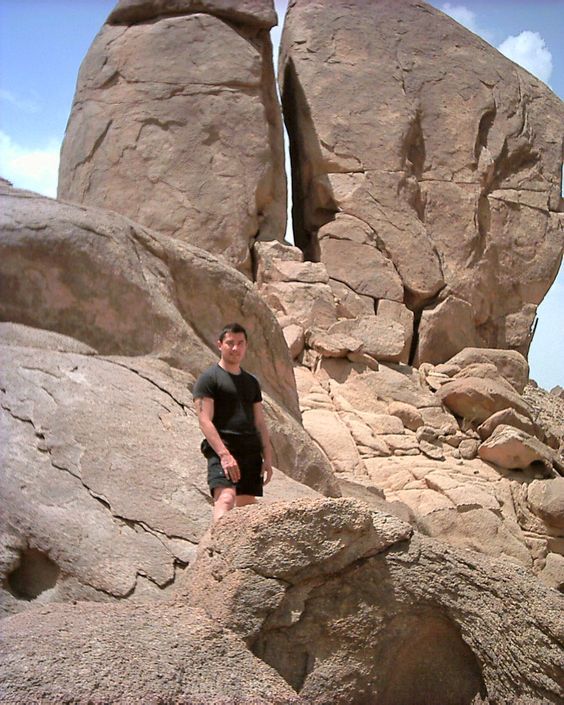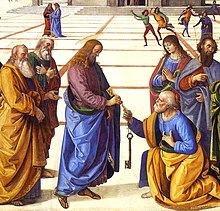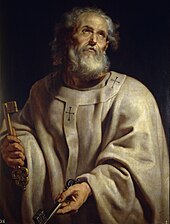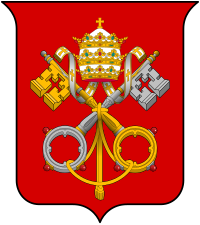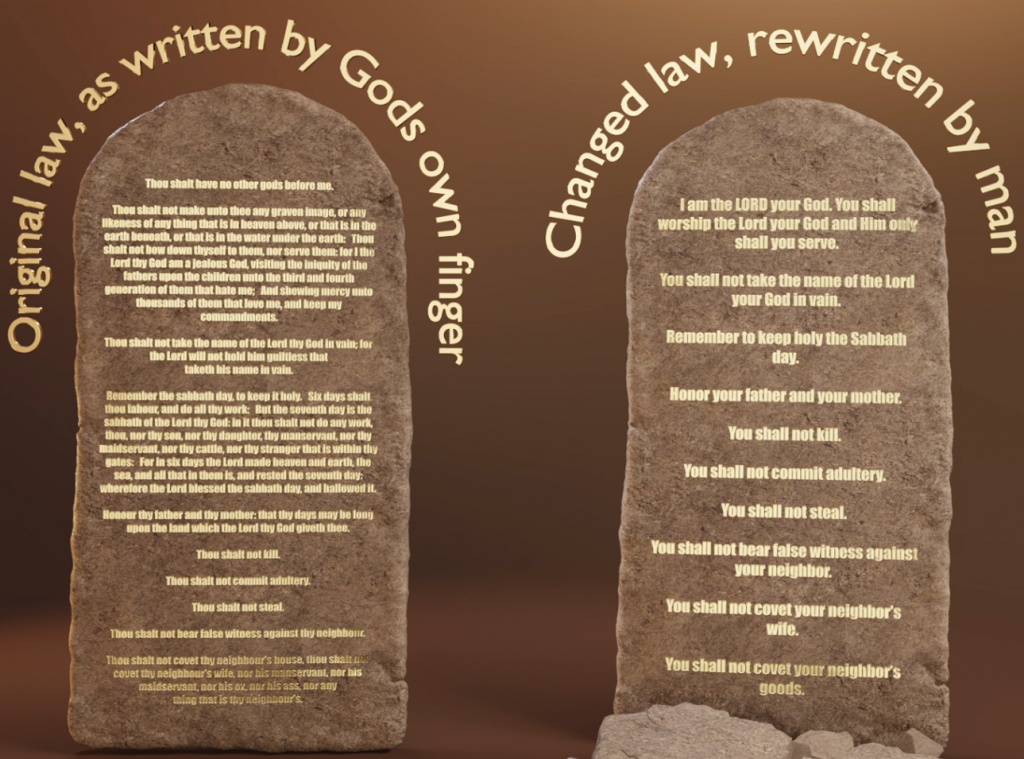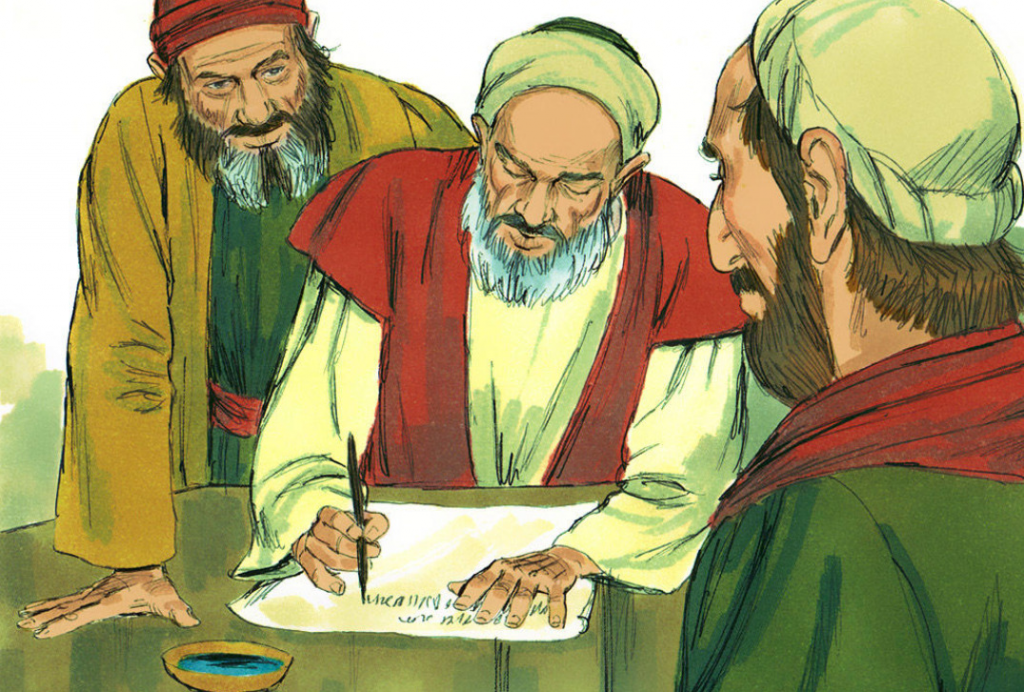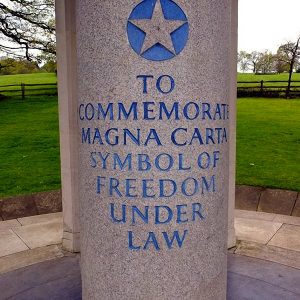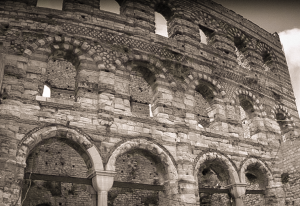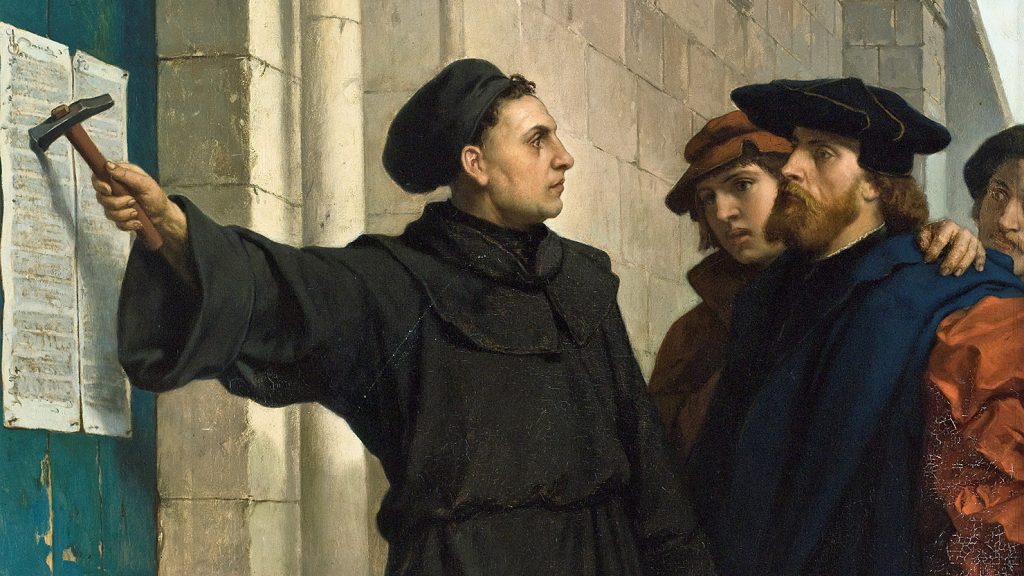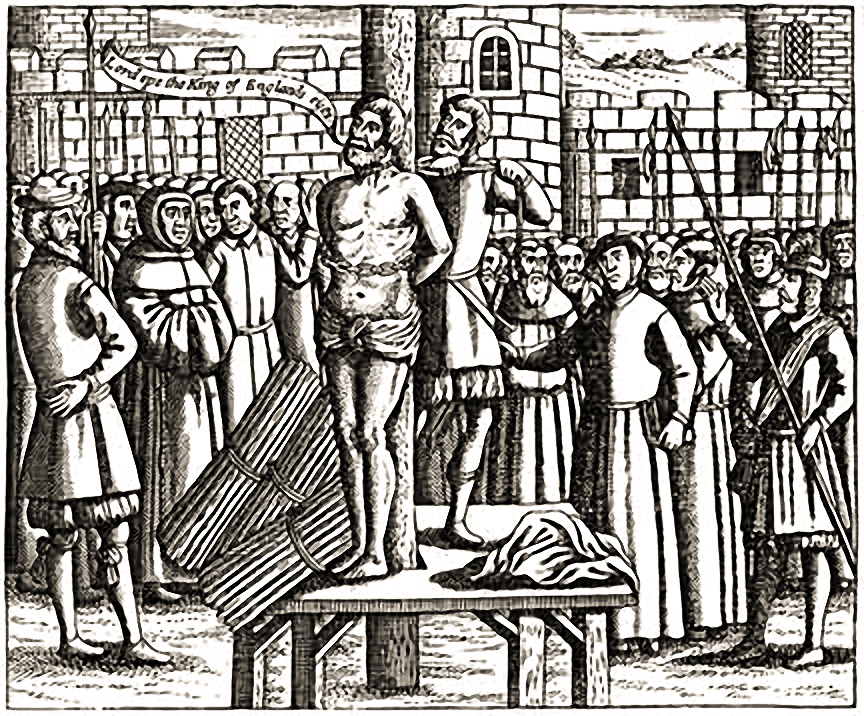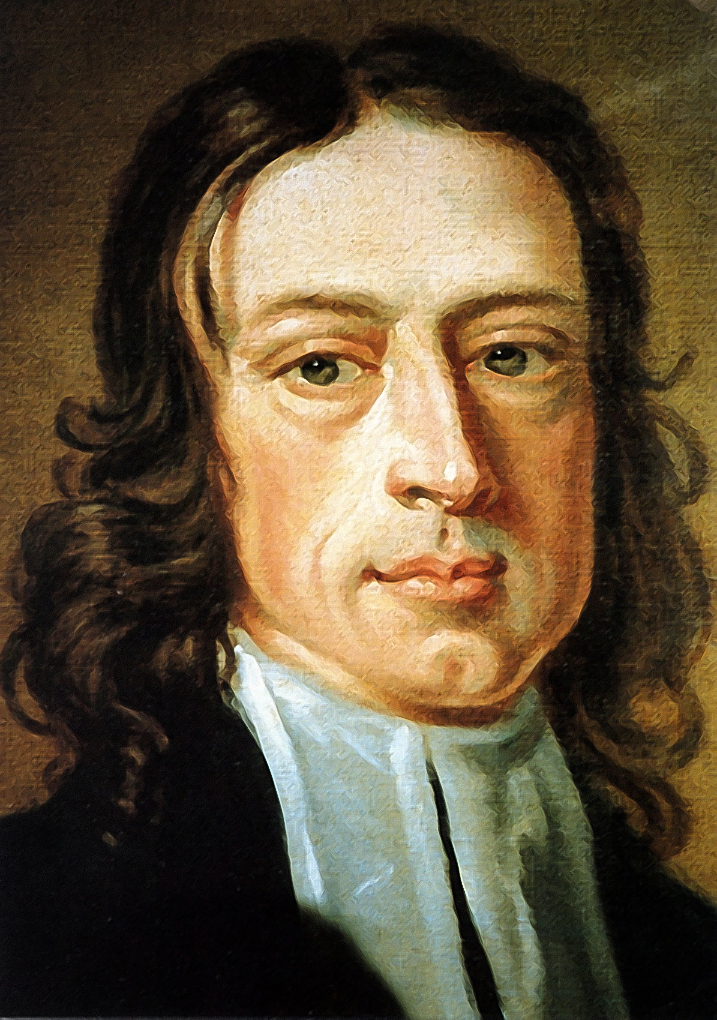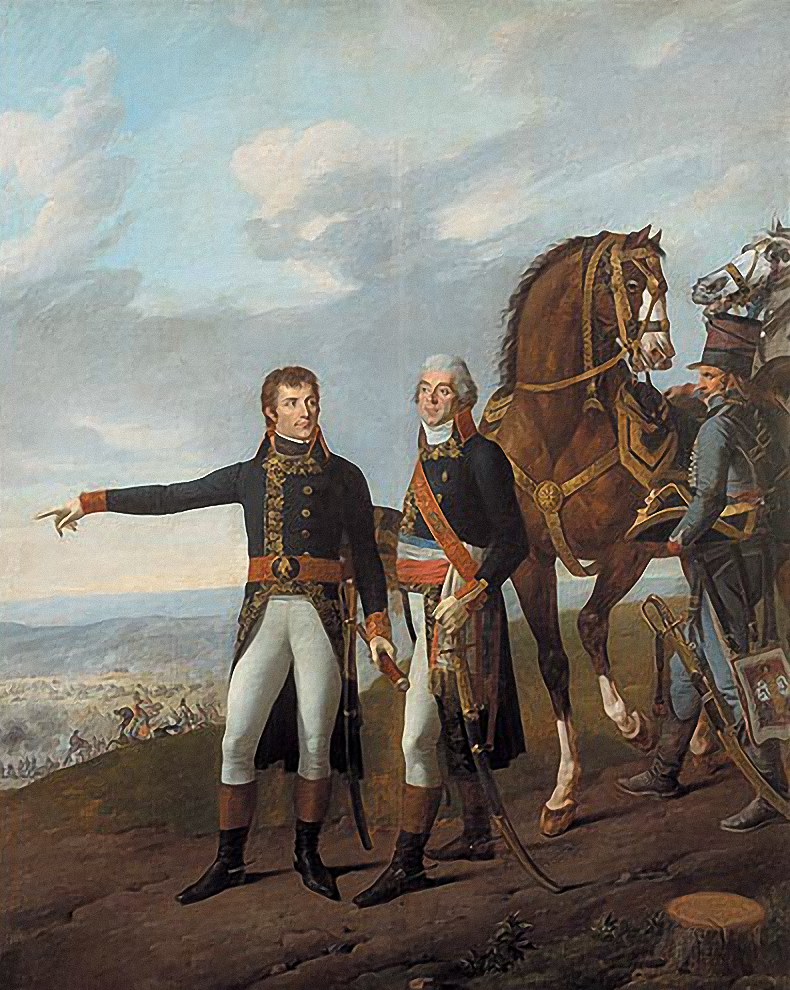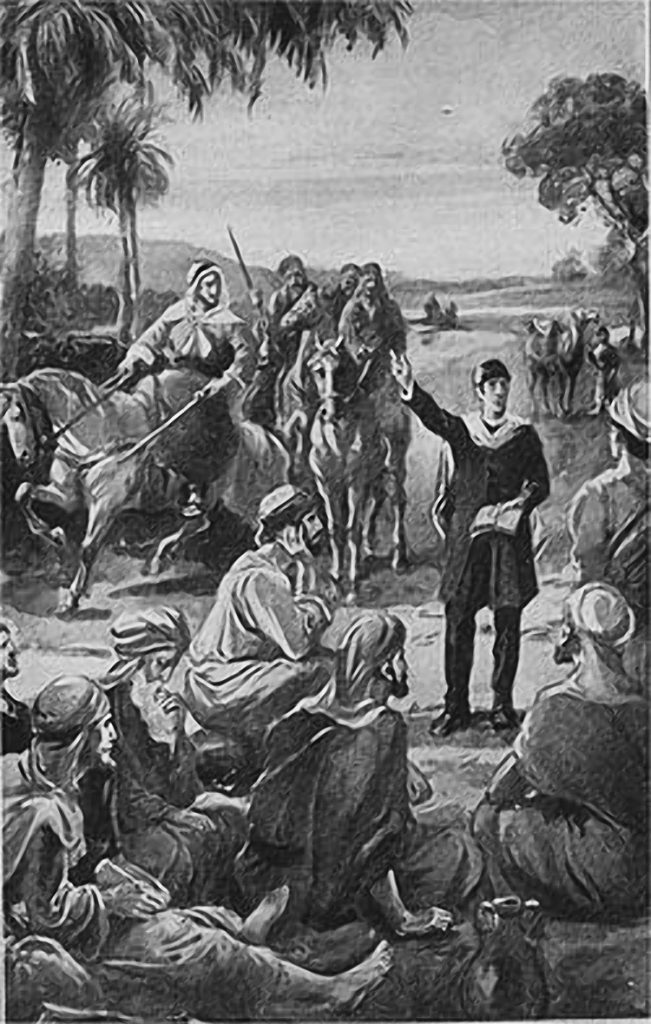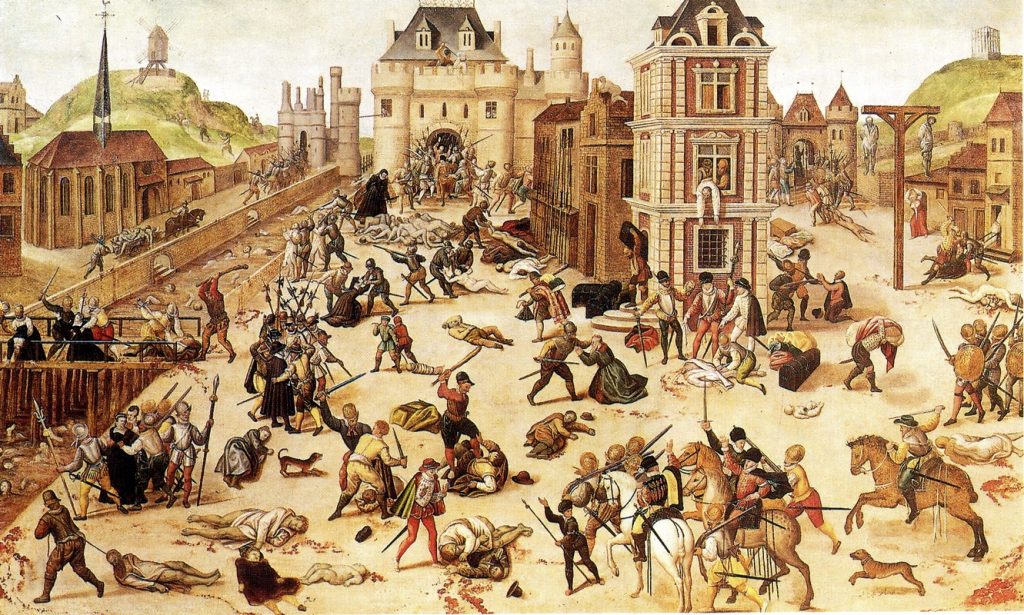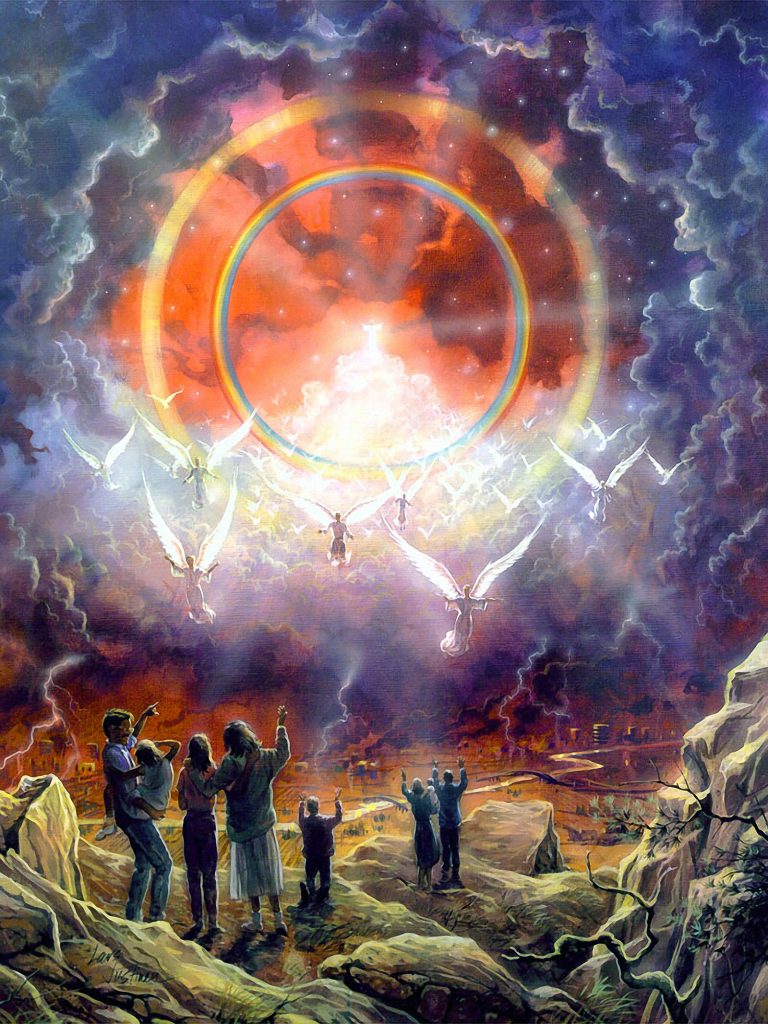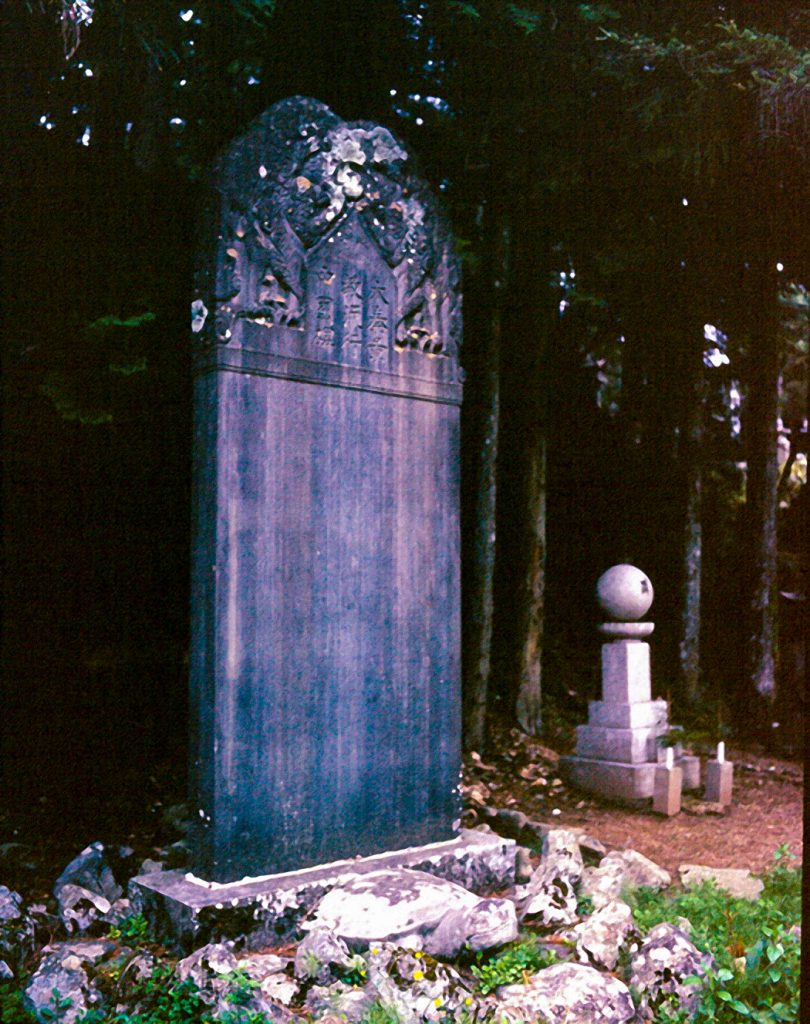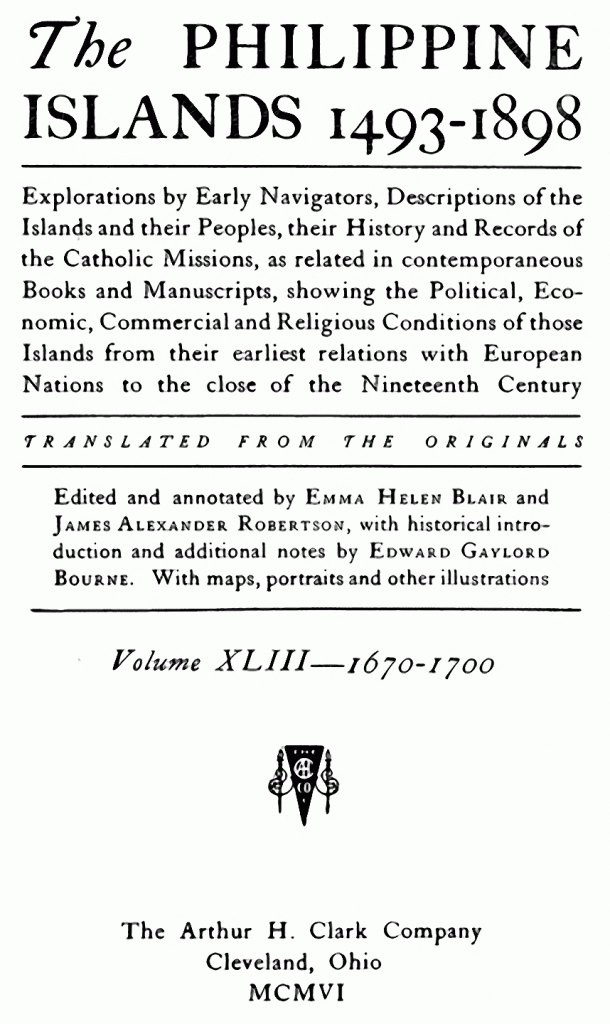
When God said He had chosen Abraham because he “kept the ordinances” many are unaware of what these laws were. However they are described in the same way as what we later know as the Torah, “kept my charge, my commandments, my statutes, and my laws.” Now the Torah does contain some laws, some known as statutes and some known as commandments. The different ways of dividing the laws are related to the different nature of the laws. Charge means he was ready to fulfill what God requested of him. ‘My commandments’ is mitzvah, which talks of a set of laws (more than one). ‘My laws’ are the word Torah, meaning instructions. So the word Torah, later used about the laws given at Sinai, was at use describing the laws Abraham kept before that. So Abraham kept a series of laws, a complex law-system.
Now let’s look at the last one: ‘My statues’ is chûqqâh, a feminine form of chôq that has the same meaning, a law tied to an appointment in time. A fixed appointment, chôq, which is again related to the word châqaq (khaw-kak’) which has the meaning of engraving something, hack or set something or make something firm by degree as a lawgiver etc. Because of the meaning of this word, it’s just translated into the English word “lawgiver”. For instance here:
“For the LORD is our judge, the LORD is our lawgiver, the LORD is our king; he will save us.” Isaiah 33:22
And here because of the relation to the engraver, it’s used translated to ‘graven’:
“Behold, I have graven thee upon the palms of my hands; thy walls are continually before me.” Isaiah 49:16
Remember that God is the one who created the languages. And nothing God does is by chance, everything has a meaning. And so chûqqâh, chôq and châqaq is referring to God’s appointed times, set at creation. God’s times are related to His right as lawgiver as explained in the Sabbath commandment when it was first given at Creation and later repeated in the Ten Commandments. And so this is the fixed appointment related to the one who made it, which is God Himself. It’s the command that witness He is the engraver.
This means that the laws among those Abraham kept had to be God’s times for two reasons.
1) God proclaimed that Abraham kept His laws, and we know the Sabbath was made holy by law at creation and therefore was among God’s laws. And thus, Abraham had to have kept it to have been credited for keeping God’s laws.
2) Among the different categories of laws listed as those Abraham kept, chûqqâh has to be the ones referring to God’s times.
Many think that God first gave the Sabbath to Israel when they were traveling from Egypt to Sinai as described here:
“And he said unto them, This is that which the LORD hath said, To morrow is the rest of the holy sabbath unto the LORD: bake that which ye will bake to day, and seethe that ye will seethe; and that which remaineth over lay up for you to be kept until the morning.” Exodus 16:23
Now notice, when Israel later enters into a covenant with God at Sinai. He requested from them that they agree on keeping His laws. However, God is not waiting for that in the last scripture you read. Instead, the Lord is telling them that He will not give them manna on the Sabbath and the importance for them to keep the Sabbath holy. The Sabbath didn’t become holy because of the covenant that God made with Israel on Mount Sinai, and depended on that relationship. The Sabbath was already holy from the time of Creation and God already expected them to keep it holy for that reason.
This is clearly revealed when we read that someone is going out to try to gather manna on the Sabbath:
“And it came to pass, that there went out some of the people on the seventh day for to gather, and they found none. And the LORD said unto Moses, How long refuse ye to keep my commandments and my laws?» Exodus 16:27-28
God said: “How long refuse ye…?”
Now, I know many like to think of God as unfair and impatient. But God Himself said He really is patient and that he is long-suffering. That’s why, after the first week He gives them manna to remember to keep the Sabbath and they fail, and he proclaims
“How long refuse ye”, it indicates one out of two possible options:
1. God is perhaps more impatient than the most worldly human ruler.
2. They had known about God’s law for a long time but had continuously made excuses to break them.
Now, the second options are the only one that is in line with the Word of God. They had been transgressing God’s laws for quite some time, which meant that they had known about God’s laws and NOT kept them.
When God makes a covenant with them at Mount Sinai it’s really God making an agreement with them that if they want to agree to represent His laws He will in return make them a “a kingdom of priests” (See Exodus 19,6 & 7) So they had to agree to keep His already existing laws that the rest of the world had rejected and in return they would be His people with great privileges. This was the Sinai agreement. The laws did not belong to Israel, they belonged to God. They were not given to Israel, they were presented to Israel as a condition to be God’s chosen people. And they were to represent His standard to the world. However Israel ended up thinking the laws were just for them and rather representing them to the world they claimed they belonged to them only. A claim God battles several times. At one point Judah claimed the sabbath was only reserved for them even though it was given as a holy day for the entire planet at Creation. And God confronts this claim in Isaiah 56:3-7 that there is to be no sabbath separation. All who keep it will be His people, not just Jews.
In this instance where God says to Israel “How long refuse ye” the matter is about the Sabbath, God’s laws related to His times. And so by this we know for a fact that Israel had been acquainted with God’s times and His Sabbath before the event of the giving of the manna. Abraham had kept God’s laws that were related to time, God’s Sabbath. He instructed Isaac, and Isaac instructed Jacob. They had all kept the Sabbath day holy. If not they had not obeyed God’s laws given from Creation. But something had happened during the time from when Israel (Jacob) entered Egypt and to the time Israel left Egypt. They were not keeping God’s laws as earnestly as Abraham had done. And from God’s words, we can tell that God was expecting that of them and that He had been overbearing with them for a long time. They were not perfect when God delivered them out of Egypt, but they had been willing. As long as someone is willing, God can work with them to transform them into His image.
In Egypt, they had somewhat been under pressure and was maybe even forced. But now, God was expecting complete obedience to His Sabbath as they were free and their oppressors, the Pharaoh and his army, were dead. They had no excuse, if they ever did, to keep violating God’s Sabbath. Now any violation was accounted as willful disobedience or direct opposition. God is long-suffering and patient, although there is offered no excuse to break God’s law, God is merciful towards those who are confused, oppressed and even towards the ignorant. But when it reaches the point of willful disobedience in a setting where God has done everything good to ensure they can keep His law in peace, He will rightfully and understandably proclaim: “How long refuse ye to keep my commandments and my laws?»
Moses himself had been taught right before going to Egypt to gather Israel, that willfully not following God’s command would cause his mission to fail. An angel went before him on the road and stopped him (Exodus 4:24). Moses had neglected to circumcise his son because of his wife’s reluctance. No such command had been given Moses at the burning bush, that he had to circumcise his son for his mission to succeed. No record is written on God asking this of him, yet an angel is sent to stop his journey in a way that signifies that Moses knew yet hadn’t done it. Why? Because once God has made a law it stands and God expects those familiar with the laws to uphold it. And so the “the LORD met him, and sought to kill him» because of this it’s evident from God’s word about Himself as patience and overbearing, that Moses had known what was right a long time yet failed to do it. Moses was well aware of God’s laws yet had used his wife as an excuse to not keep one of them. The angel was sent to stop Moses until he had kept also this law. God doesn’t have to repeat His law for us to understand it’s still valid. God doesn’t change.
The lesson given Moses of the importance of keeping God’s laws for success was no doubt part of his instructions to the children of Israel when entering Egypt. If God was strict with the leader in order to bless the mission, He would also require obedience from Israel. Again I repeat: that although it doesn’t mention God giving Moses the command of circumcision doesn’t mean it wasn’t a command. When the Bible has previously informed of a law it means it still stands in the future and that God’s children are held on account on them. The Bible doesn’t have to repeat that they are still valid in order for them to be. The same with the Sabbath, although God doesn’t inform Moses that the sabbath is still holy at the burning bush it was by default as it had already been set at creation and all who were credited for following God’s laws later would, therefore, be keepers of it. When God strives with them for not keeping sabbath after they left Egypt it’s not out of the blue, for it had been valid the whole time and they knew of it.
So were Israel already in Egypt reminded of the Sabbath and the importance of keeping it for God to go before them as their King and lead them out of Egypt?
Moses didn’t go first to Pharaoh, he went first to the elders of the people.
“And Moses told Aaron all the words of the LORD who had sent him, and all the signs which he had commanded him. And Moses and Aaron went and gathered together all the elders of the children of Israel: And Aaron spake all the words which the LORD had spoken unto Moses, and did the signs in the sight of the people. And the people believed: and when they heard that the LORD had visited the children of Israel, and that he had looked upon their affliction, then they bowed their heads and worshipped.» (Exo.4:28-31)
In the next Bible verse, Moses and Aaron go to Pharaoh. The Bible does not fill in everything that happened between Moses speaking with the elders and going to Pharaoh but some time had to have passed. And the reason we know that is from the dialogue that takes place between Moses and Pharaoh.
From their conversation, we learn that the people of Israel had already been stirred up by Moses’ words so much so that the word had come to Pharaoh before Moses even came there. And they didn’t have internet and TV back then, the stir had to have some influence to draw Pharaoh’s attention.
Not just the word of a deliverer but a change had taken place in the Israeli camp which Pharaoh apposed. He also already knew about them.
Let’s look:
«And the king of Egypt said unto them, Wherefore do ye, Moses and Aaron, let the people from their works? get you unto your burdens.
And Pharaoh said, Behold, the people of the land now are many, and ye make them rest from their burdens.»
Had Israel been relieved from the slavery by Moses? No, for Moses went and said to Pharaoh:
«Thus saith the LORD God of Israel, Let my people go, that they may hold a feast unto me in the wilderness.» (Exo.5:1)
He was asking the Pharaoh to make the command letting them take the time to go worship God a three-day journey from Egypt.
And in the next verses, we learn that they were still working.
So what rest had Moses caused them to keep by his influence? Notice the Pharaoh’s word «and ye make them shâbath from their burdens». That is the same word used for when God rested on the first Sabbath day to make it holy:
«And God blessed the seventh day, and sanctified it: because that in it he had shâbath from all his work» (Gen.2:3)
The word is sometimes used to describe resting in generally, but tied to the rest that Pharaoh is aiming at its not ordinary rest as we know they continued working along with this rest, they had just received an encouragement to be faithful to the God of Abraham and His laws and lastly the hopeful preparation to their departure would no doubt urge them to keep the sabbath holy.
Whatever had happened the result of the news that God had heard them and was going to deliver them was that they had started to take shâbath from their burdens.
The pharaoh would have nothing of it. Slaves gathering to shâbath would mean their unity would strengthen, perhaps also their potential uproar. He answers by removing every opportunity for them to shâbath by increasing the workload in such a way that there would be no time to do anything else.
The Israel shâbath from work was seen as a threat against his dominion over them. It was about control.
Pharaoh, therefore, had the following idea:
«And Pharaoh commanded the same day the taskmasters of the people, and their officers, saying, Ye shall no more give the people straw to make brick, as heretofore: let them go and gather straw for themselves. And the tale of the bricks, which they did make heretofore, ye shall lay upon them; ye shall not diminish ought thereof: for they be idle; therefore they cry, saying, Let us go and sacrifice to our God.» (Exo 5:4-8)
Now Pharaoh had not forbidden the people of Israel from worshiping their own God. What he did mind was that their duty to this God was placed before and above their duty to him as their ruler.
Taking the time to gather together made him feel they had time to develop what he viewed as fanaticism: leaving Egypt to go three days into the wilderness to sacrifice to this God.
You can have many gods without risking uprising and conflict, but you cannot have more than one lawgiver. Rome and Babylon learned this lesson and allowed many semi-gods and pantheons. They both tolerated the Jewish faith as well. But when the law of their God conflicted with their laws, conflicts were imminent. Their God had to be subdued under the pagan rule or their religion would be viewed as a threat. We see these conflicts emerging when Shadrak, Meshak and Abed Nego refused to abide by the state law in the religious matter and was cast into the fire. Or Daniel cast into the lion’s den. Or when the jews made their revolt against Rome or when the Christians refused to adore the Roman leaders and their governmental ordained feasts. A conflict always arises between the minority and the leadership when there is a conflicting lawgiver.

Pharaoh likewise was not troubled by Israel or who they worshiped until that God ordained them to shâbath on times not commanded by Pharaoh or as long as that God didn’t tell them to disobey Pharaoh. Remember Moses never told Pharaoh they intended to never come back, he only requested for them to go a three days journey to sacrifice to God. The whole truth of the exodus was this far hid from Pharaoh. What Pharaoh was faced with at this point in time was that the God of Israel was placing His commands above Pharaoh. And Pharaoh would not have it. Can you even have slaves who answer to another Master? It’s not possible. Pharaoh thought the best way to quench the potential rebellion was to make sure he alone was their lawgiver and Master. Meaning no laws attributed to the God of Israel that conflicted with his own was permitted.
Israel was not allowed to shâbath from their labors, and they were not allowed to travel outside of Egypt’s border to obey some command from their God to sacrifice to Him there. God would not be permitted to take over in instructing the people.
«So the people were scattered abroad throughout all the land of Egypt to gather stubble instead of straw. And the taskmasters hasted them, saying, Fulfill your works, your daily tasks, as when there was straw.» (Exo 5:12-13)
When Israel struggled under the burden placed upon them and asked Pharaoh the reason for this severe command he answered them and said:
«Ye are idle, ye are idle: therefore ye say, Let us go and do sacrifice to the LORD. Go therefore now, and work; for there shall no straw be given you, yet shall ye deliver the tale of bricks.» (Exo.5:17-18)
Pharaoh called their shâbath from their labors as something caused by their own laziness and attempt to escape work but in reality, it was a power struggle. Pharaoh had to show them who was their Master once and for all.
God would not let His people go. He had intended to bring them out of Egypt for the sake of His promise to Abraham, Isaac and Jacob but also because they had cried to Him for deliverance (Exo 4:31)
But before that God had to show Pharaoh that He was greater than him and therefore He was to be their lawgiver and not Pharaoh. It was the battle over who was to be the lawgiver and ruler over Israel. Pharaoh didn’t’ just claim to have been given the right to rule by the sun god but claimed he was the manifestation of the sun god on earth. Meaning a pharaoh was a god on earth or the god’s representative.
Their crown had a cobra on the front, this serpent symbolized sovereignty, royalty, deity, and divine authority in ancient Egypt.
The first sign Moses and Aaron give Pharaoh is throwing their staff, a symbol of authority, to the ground and then it turns into a serpent. This was very symbolic at the time and when the sorcerers of pharaoh imitated the sign by turning their staves to serpents, the staff of Aaron eats the serpents of the sorcerers. By this God showed that He was the supreme God and not Pharaoh and the gods he represented. Every good thing in nature the Egyptians credited to their gods. Water was the source of life, not just in the world but the Nile itself was the major reason for Egypt’s fruitfulness and success, and the false gods were praised for providing it. God now commands Moses to turn it into blood, remembering the deed all the Egyptians had taken part in when the Pharaoh had commanded to them: «Every son that is born ye shall cast into the river» (Exo 1:22) Bear in mind the Egyptians had conspired together and done this not Pharaoh himself. He had just given the command, the people of Egypt had been the executioners. Willing because of their prejudice against this people that had a different God and different customs.
God showed them he remembered the deed they had done by turning the river into blood.
In the book of Revelation God intends to do it again and it’s explained that bloodshed is part of the reason:
«For they have shed the blood of saints and prophets, and thou hast given them blood to drink; for they are worthy.» (Rev.16:6)
But Pharaoh refused to be warned and let them go.

The second plague was frogs. In Egypt, the frog was a symbol of life and fertility and this belief even caused them to create a frog deity named Heqet. Now they came over the land like a plague. The next plague was associated with death. It interrupted their daily life. The fourth plague were flies. In the New Kingdom which was when the Exodus took place a golden fly amulet was

given in recognition of persistence and bravery in the face of enemies. Now they were swarming the kingdom. In the fifth plague, the Egyptian livestock died and the sixth plague was boils. The seventh plague was hail, the eight locusts, and the ninth darkness. God struck them harshly. Egypt had become the biggest nation on earth at this time because of God’s blessings during the reign of Joseph. Buying land and wealth to supply people with food for seven years gave Egypt the advantage to other kingdoms and helped it grow to its current prosperous state. Joseph had credited the God in heaven, the Egyptians knew it. They knew how Israel had come to dwell in the land in gratitude for what the God of Joseph had done to save them. In return, they had filled the river with the blood of the children of Israel and they had suppressed them, discriminated them and made them slaves. Now all their wealth was crumbling because they were refusing to let the people go and

be free. Lastly, the sun itself was hidden from them. Pharaoh had claimed to be the sun god manifested but here was something greater than the sun-god, Pharaoh’s claim to power and as a lawgiver was cast down. Still, the pharaoh refused to let the people go with their possession that was yet unharmed. He would let them go, but not their valuables especially now that Egypt had lost theirs. The result was the last plague. The firstborn all over the land would die if they still refused to let them go. And they did. This time, however, Israel would be harmed by the plague as well unless they made their case right with God. How could God judge the Egyptians if Israel unapologetic committed similar sins? The plagues would, therefore, come upon all that had not sought atonement for their transgressions.
God would not lead Israel out while rebelling God’s authority. The Passover sacrifice marked their exodus, where the blood of the lamb atoning for their sins was to be sprinkled outside on the doorpost. While eating the Passover lamb they were to stand ready to leave Egypt once and for all, a substitute had died in their place, their sins atoned for and a new life as a free nation under God could begin (Exo.12)
They were told to ask the Egyptians for gold and silver, scared as they were after all the events they gave Israel all they asked for. This was God’s way of assuring they got their pay for all their labors for the Egyptians.
Seeking God’s atonement for their transgressions, refusing to worship the Egyptian gods would require them to respect God’s laws. And one of those laws was the Sabbath. The moment they showed a willingness to respect the command to shâbath and Pharaoh decided to make that impossible, God was given a reason to fight the Egyptian monarch by force. If Israel wanted to respect Him as a lawgiver and commemorate the mark of Him as Creator, no human ruler would be allowed to stand in the way. God kept the Egyptians occupied with the plagues until Israel was mentally and physically ready to leave.
It’s simple. God claims to be the Creator of planet Earth, it’s supreme judge. If it’s impossible for people on the planet, physically impossible, to keep the laws of the Creator, it means God no longer has any authority there. If the options for the inhabitants of the earth to chose obedience are no longer there, God has lost all say. So when people want to do God’s will but are unable because of earthly rulers, God will fight for their rights to do it. He will even destroy that earthly kingdom, no matter how great it is, to deliver His people so they can obey Him. And this is exactly what will happen in the end times as explained in the Bible. The beast kingdoms are subjected to plagues and cast into “the lake of fire”. They had taken from those who “have the commandments of God and the faith of Jesus” the right to trade, buy or sell and even sentenced them to death. The problem this time is that the “beast-power” doing this has received worldwide followers, united with kings all over the planet. There is no escape for God’s people, no promised or deserted land to take refuge. The rebellion and attack on God’s people are global and so God intervenes to cast down these kingdoms and take over the control of the planet (See Revelation 13,14,15, 16 & 18).
Now God does not allow people to carry the weight of their possession on the Sabbath nor does He permit any labor. Walking a whole day with all your possessions would mean hard labor. The Sabbath rule existed from Creation, had been made holy and even named after the word “rest”, and so would God send them on their journey moving all their things and animals on the sabbath? During their exodus from Egypt, we first see them walk for three days and then they were told to camp:
«And they took their journey from Succoth, and encamped in Etham, in the edge of the wilderness.» (Exo 13:20)
After that, they continue their journey until they encamped in front of the Red Sea. No doubt they were told to camp the first time to respect the Sabbath commandment. There is no other day that week where they had complete rest and had they walked for a full seven days it would have been evidence that God told them to disregard the Sabbath. But it didn’t happen. God has them rest along the way, according to Moses they would worship God on that first stop. And so it was a day of worship. When they later encamped in front of the Red Sea they were placed under great stress with the Egyptian army following and the parting of the Red Sea. Also, the steep road into the Seabed was even a harder path than the one they had already gone. This could not have been the Sabbath. The most likely day for the sabbath was, therefore, their first camp in Etham.
Remember they had told Pharaoh that they would travel three days into the wilderness to sacrifice to their God, they never said they weren’t coming back. It was first when they after this encampment in Etham they continued their journey rather than going back that Pharaoh heard about it and came after them and he caught up with them in front of the Red Sea.
«And it was told the king of Egypt that the people fled: and the heart of Pharaoh and of his servants was turned against the people, and they said, Why have we done this, that we have let Israel go from serving us?» (Exo.14:5)
Israel is saved and the Egyptian army drowns in the Sea. God had given them many chances and now God had no other choice if Israel were to remain free but to stop them once and for all.
When Israel comes to the other side, a little later, God sends them manna to eat. This is when God says to Israel after they go out to look for Manna on the Sabbath:
«And the LORD said unto Moses, How long refuse ye to keep my commandments and my laws?»
Now in this perspective that we have just shared, it’s easier to understand how God can make this complaint about them after only the first week of Manna.
But let’s take one last look at Pharaoh. one of his first battles with God was refusing to let God’s people take rest from their work. From the setting of everything, we are most likely talking about Pharaoh fighting against God’s Sabbath command.
In the end days, we see this similar setting. The whole world is following an earthly government that is enforcing people to break God’s commandments. (Rev 13:15-16, Rev.14:9-12)
Those that follow the earthly ruler will keep his saying and those who refuse will keep God’s law.
The earthly government will answer by first demanding those who will not obey it that they are not allowed to buy or sell or even have a livelihood. Then it will also give God’s people the death penalty just for following God’s command over theirs. We see God will respond to them the same way He did Pharaoh, He will send plagues over them that will affect their livelihood in return until they leave His people alone. But they refuse, just like Pharaoh they continue to try and force God’s people to submission, the result is Christ second coming where God’s people will be delivered and the earthly governments opposing Him cast into the lake of fire just like Pharaoh and His army was cast in the Red Sea.
In both cases, it was the blood of the substitute, the Passover lamb for Israel and the true lamb Jesus Christ for the believers, His blood, that will give them the exodus and ultimate deliverance. Repentance and covering themselves in the blood of Christ, the true Passover, will save God’s people who wish to be obedient to Him. And God will deliver His people so that they can serve Him as they wanted.
Pharaoh would not permit God’s people to shâbath feeling it gathered the people under a different lawgiver and by it out of his control. So he tried to force them to labor. Any ruler doing the same as Pharaoh did will suffer his fate.
Let us therefore shâbath from our labors after God’s command and keep the Shabbâth. Not the one ordained by earthly rulers, but the one ordained by God at creation and repeated at Sinai. The same Shabbâth Jesus kept when He was here on earth as our example and inspiration. The same Shabbâth Jesus claimed to be the master of. The seventh-day sabbath, the only biblical sabbath, from sunset Friday to sunset Saturday.
Sunday is the day instituted by earthly rulers claiming to represent God. They unrightfully claim to ordain and abolish laws with God’s consent. But God has never permitted anyone, any earthly ruler, to make His laws or abolish them. Those doing this claiming to do it in His name are liars and deceivers. They tell you they are leading you to Christ while in fact, they are tricking you into rebellion against God as lawgiver. If we keep the changed sabbath we honor earthly rules claiming to be in God’s place. If we keep God’s sabbath we honor Him as Creator and make Him our lawgiver.
Today we can choose to shâbath from our labors while preparing and waiting for Christ to deliver us from our bondage here on earth.






